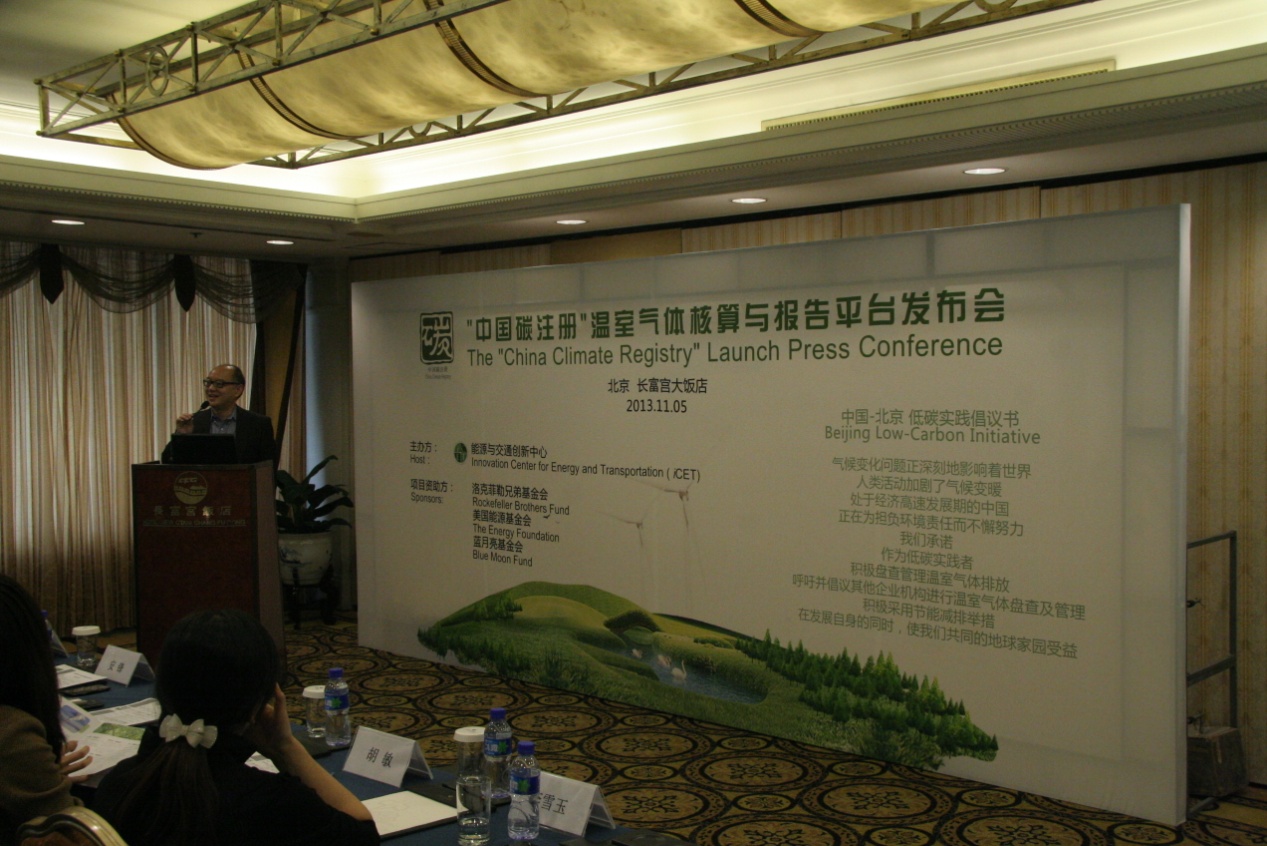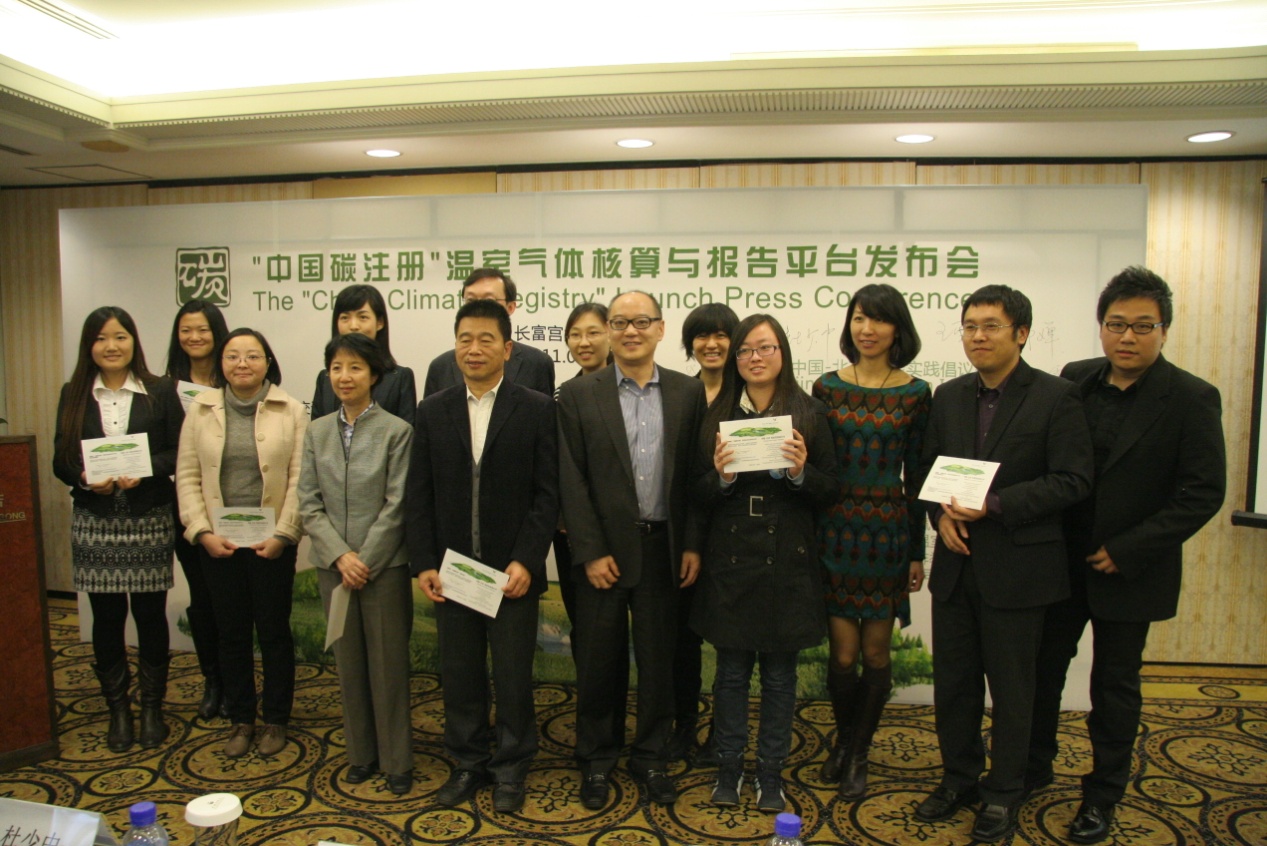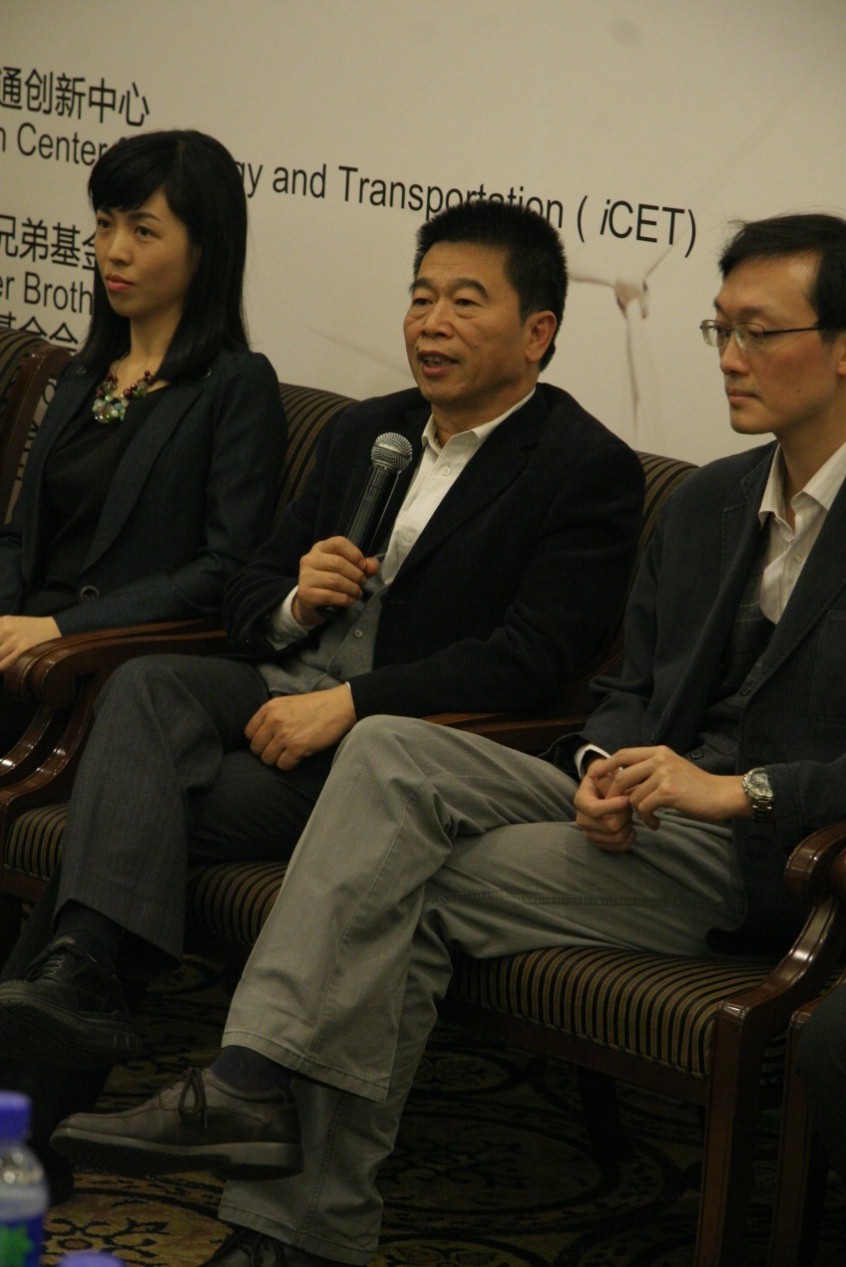News I China’s first non-profit greenhouse gas management platform "China Energy and Climate Registry" launched
The China Energy and Climate Registry (ECR) Launch Press Conference was successfully held in Beijing Chang Fu Gong Hotel on November 5, 2013. ECR was developed by the Innovation Center for Energy and Transportation (iCET) as the first non-profit greenhouse gas accounting and reporting platform with sponsorship from the Rockefeller Brothers Fund, the Energy Foundation as well as the Blue Moon Foundation, and with technical support from The Climate Registry (TCR), the most influential greenhouse gas registry organization in North America. iCET drew on the international experience of TCR, then altered the methodology to suit the domestic industrial practices in China. Thus, ECR is in compliance with both the international standards and the actual needs of Chinese enterprises and institutions.
Being the country's first non-profit greenhouse gas management platform, ECR has the authoritative and specialized methodologies to help companies manage carbon data. It will open free of charge to all domestic entities and provide users with both a professional operational guide titled "Greenhouse Gas general accounting protocol" and a supplementary video demonstration.
"China Energy and Climate Registry" is one of the major founding partners of Global Climate Registry Alliance. Global Climate Registry Alliance is a partnership between programs worldwide actively supporting efforts to measure and manage greenhouse gas emissions. Launched by founding partner registries in Brazil, China and North America in June 2012 at the Rio+20 Summit, it's aimed at building a coherent global greenhouse gas reporting system and using measurable, reportable and verifiable standards to promote global green and low-carbon sustainable development

The conference attracted support from various industries and organizations. The National Center for Climate Change Strategy and International Cooperation Senior officer Gao Hairan and the chief executive of China Beijing Environment Exchange Du Shaozhong joined the event and addressed attendees. Representatives from Beijing Environment Exchange, Tianjin Economic-Technological Development Area, the NRDC, China Youth Climate Action Network, Accenture Sustainability Services, Global Environmental Institute, Beijing Forestry University, Asia Clean Air Center, Greenfield Environmental Management Consulting, Vedanta Investment Consulting, Fujian Institute of metrology, Fujian Huatuo Automation Technology Company, Shenzhen low carbon development fund and other institutions, signed the Beijing Low-Carbon Initiative committing to be low-carbon practitioners and actively examine and manage greenhouse gas emissions. This agreement was made with the aim to appeal and advocate to corporate entities in order to carry out greenhouse gas examination and management as well as to provide incentives to take energy-saving and emission reduction measures to benefit society while improving development goals. Innovation Center for Energy and Transportation CEO Dr. An Feng selected participating institutions and enterprises as the first batch of honorary accounts for China Energy and Climate Registry, providing the groundwork for all institutions and enterprises to practice carbon management using this tool.

During the following interactive sessions, when answering media questions, Shaozhong Du, chief executive of Beijing Environment Exchange, said:“’China Energy and Climate Registry'platform is like a ‘school’, in which businesses can adequately learn and understand carbon inventory work. At present, the government doesn’t impose mandatory emission reductions on most enterprises, but as the pilot progresses, there will be more businesses in need of carbon management."

Ms. Fang Fang, vice president of iCET said: "After 5 years of unremitting efforts, ’China Energy and Climate Registry’ was officially launched, instead of being the end of the project, it’s a fresh start. The focus of future work is to have more people know ’China Energy and Climate Registry’, have more institutions and enterprises to use the ’China Energy and Climate Registry’ platform. We hope to help more enterprises and institutions build capacity through this project, so that enterprises can clearly understand their own emissions, provide the basis for making the optimal reduction strategy, and ultimately improve energy efficiency, optimize the allocation of resources and reduce climate risk.”